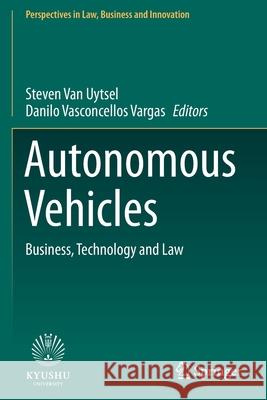Autonomous Vehicles: Business, Technology and Law » książka
topmenu
Autonomous Vehicles: Business, Technology and Law
ISBN-13: 9789811592577 / Angielski / Miękka / 2021 / 242 str.
Autonomous Vehicles: Business, Technology and Law
ISBN-13: 9789811592577 / Angielski / Miękka / 2021 / 242 str.
cena 563,56
(netto: 536,72 VAT: 5%)
Najniższa cena z 30 dni: 539,74
(netto: 536,72 VAT: 5%)
Najniższa cena z 30 dni: 539,74
Termin realizacji zamówienia:
ok. 16-18 dni roboczych.
ok. 16-18 dni roboczych.
Darmowa dostawa!
Kategorie:
Kategorie BISAC:
Wydawca:
Springer
Język:
Angielski
ISBN-13:
9789811592577
Rok wydania:
2021
Ilość stron:
242
Waga:
0.34 kg
Wymiary:
23.39 x 15.6 x 1.3
Oprawa:
Miękka
Wolumenów:
01
Dodatkowe informacje:
Wydanie ilustrowane











